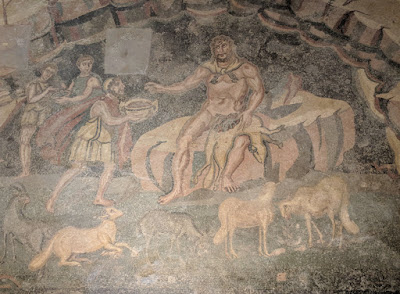Friday, April 26, 2024
Late stage civilization
Monday, March 11, 2024
76% of American Christians are now the very antithesis of disciples of Jesus
Relevant Magazine, August 23, 2023, here:
76 percent of Christians now believe God wants them to prosper financially. That number rises among younger generations, with 81 percent of churchgoers between the ages of 18 to 34 and 85 percent of churchgoers 35-49 holding onto that belief.
Luke 14:33 :
So you cannot become my disciple without giving up everything you own.
Tara Isabella Burton traces the origin of this prosperity gospel heresy to a new England faith healer named Phineas Parkhurst Quimby who influenced Mary Baker Eddy, the founder of Christian Science.
Dubbed "the mind cure" and "New Thought" historically, it mushroomed into a diverse number of iterations over time both religious and secular beyond this humble beginning, not the least of which was in Norman Vincent Peale. Today it broadly goes by the term "manifesting, the art and quasi-spiritual science of willing things into existence".
The latter succinctly encapsulates what faith-healing, prosperity Pentecostalists like Kenneth Hagin and Ken Copeland styled "calling those things which be not as though they were" (Romans 4:17). They believe the Christian's tongue has the power to create something out of nothing, just like God.
Burton aptly describes it as
the instinct to conflate spiritual forces, political and economic outcomes and our own personal desires.
Here, for The New York Times.
Sunday, January 21, 2024
Saturday, November 18, 2023
Wednesday, January 15, 2020
David Bentley Hart translated the New Testament recently, but neglects its Jesus and his belief in hell
David Bentley Hart is this season's Rob Bell. Everybody who wants to be $omebody in Christianity lately tries to make it off of hell, faggotry, the prosperity gospel or intentional Christian "community".
If the guy were honest, he'd reject the Jesus of the gospels instead of posing as one of his theologians. Some would say he already has, he just doesn't know it yet.
Monday, June 17, 2019
Trump hasn't lied 5,000 times, he's just channeling Norman Vincent Peale's power of positive thinking and the prosperity gospel's power of positive confession
Friday, May 31, 2019
Prosperity gospel grifters have their own watchdog, Texas' Trinity Foundation
The preachers getting rich from poor Americans:
Thursday, April 20, 2017
The first schismatics are the Roman Catholics themselves, and then the Greek Orthodox, and they are divided to this day
Saturday, December 31, 2016
Like others WaPo calls Paula White, picked by Trump for an inauguration prayer, controversial
 |
| White and new husband Jonathan Cain of Journey fame both on marriage #3 |
Wednesday, July 13, 2016
By their fruitcakes ye shall know them: Hotty pastorette close to Donald Trump is a prosperity gospel heretic says Russell Moore
Moore stated his objection to what White represents clearly already last October, here:
Russell Moore, president of the Ethics and Religious Liberty Commission of the Southern Baptist Convention, is disputing conventional wisdom that Trump is hugely popular with born again Christians, insisting those actually in his camp follow the “dangerous false teaching of the prosperity gospel.”
Thursday, May 26, 2016
Matthew Harrison, LCMS President, accurately diagnoses what ails the church abroad
Saturday, May 21, 2016
The poor in spirit according to Joseph Benson
Wednesday, February 17, 2016
A scholar of the prosperity gospel pinpoints the false message of libertarianism at the heart of it
Monday, September 9, 2013
At Least Two Thirds Of American Christianity Is Counterfeit
 |
| στενὴ ἡ πύλη καὶ τεθλιμμένη ἡ ὁδὸς |









